Free Toilets & Drinking Water: This Trio’s Innovation Has Impacted 5000+ Lives
SHRI’s sanitation units have toilets which are free for users and the facilities can purify about 1000 litres in an hour! The villagers are being supplied this water at 50 paise per litre!
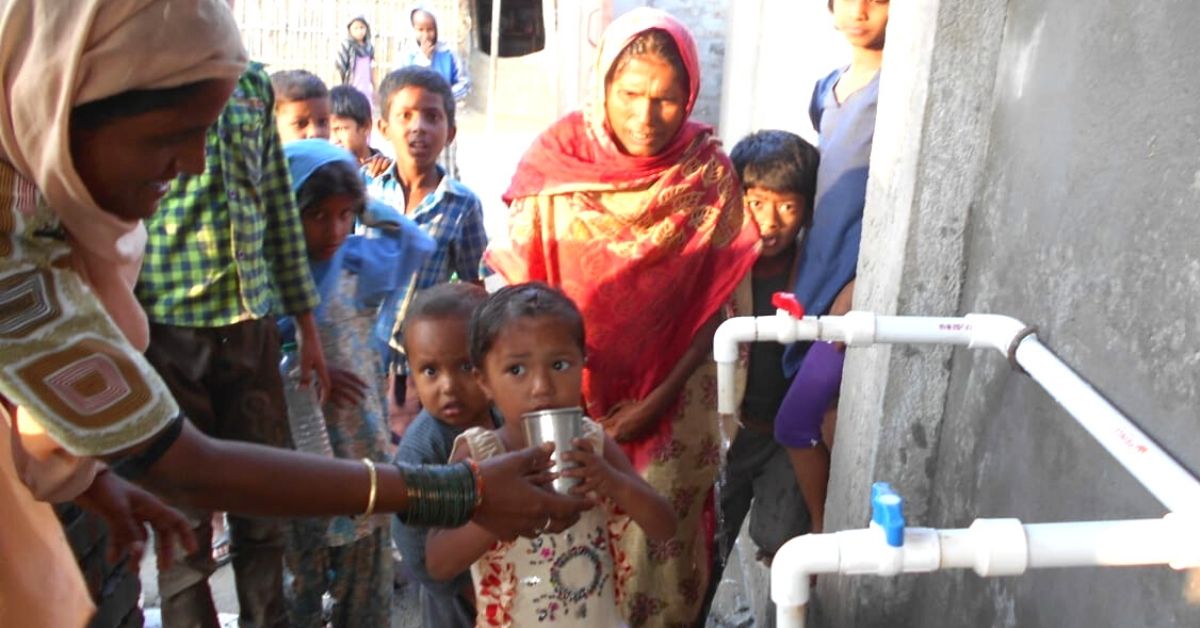
Before the crack of dawn, Sonamani Devi, a resident of Dumdi village in Jharkhand, would venture out with her three daughters in the dark. She had no other choice. In the absence of toilets, they had to find a space to answer nature’s call before the men started arriving.
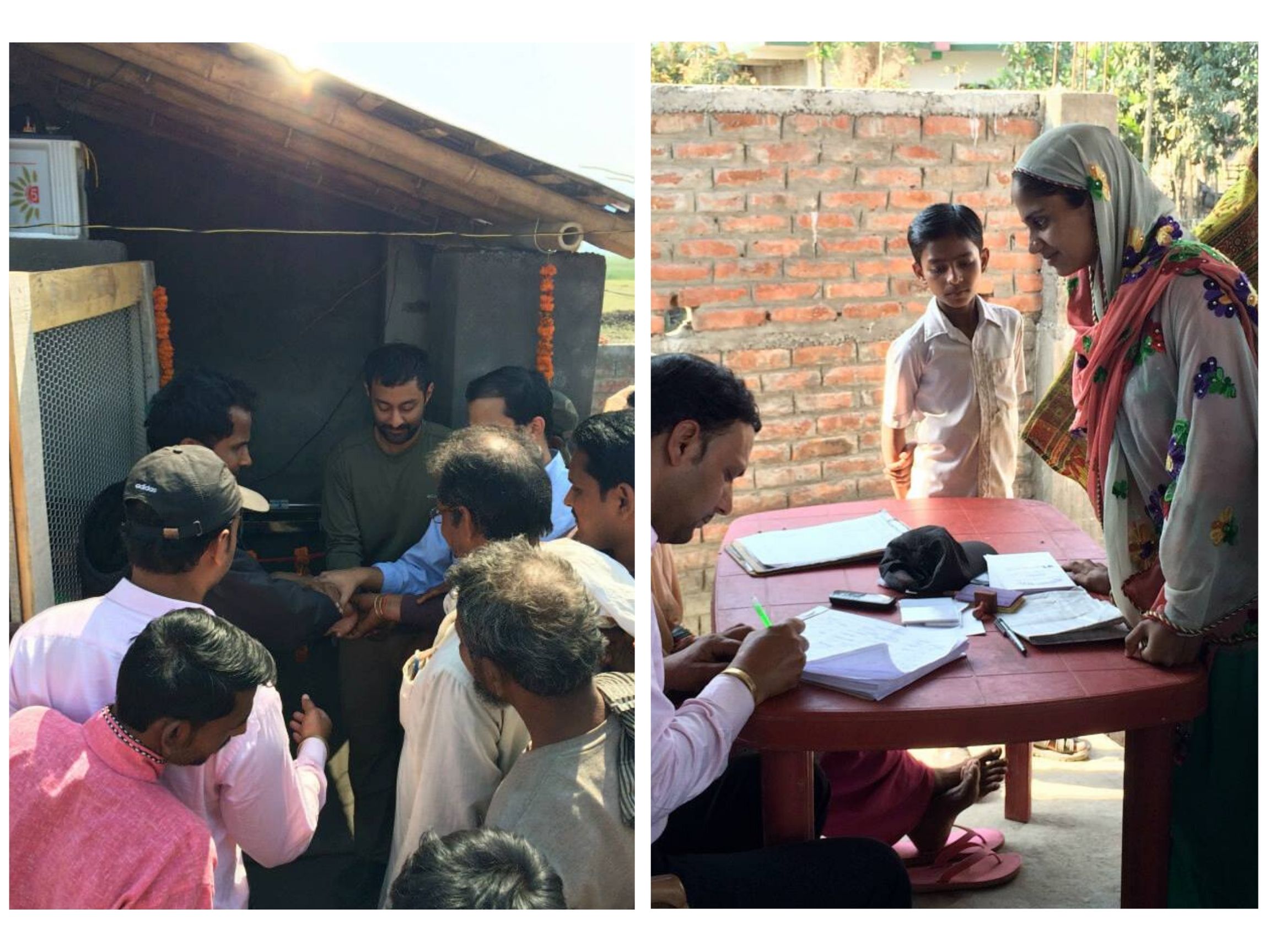
“Hume bahar hi baithna padta tha. Subah jaldi nikalte the hum kyuki jab roshni aa jaati thi, bohot sharam aati thi hume. Aadmi ghoorne lagte the,” says Sonamani. (We had to sit in the open. We had to venture out early because if it got bright, men would stare at us. We used to feel very embarrassed).
But things have changed for Sonamani Devi and several people like her. “Now, I can visit the toilet as many times as I want. We do not have to worry about the time. It’s safe and free,” she smiles.
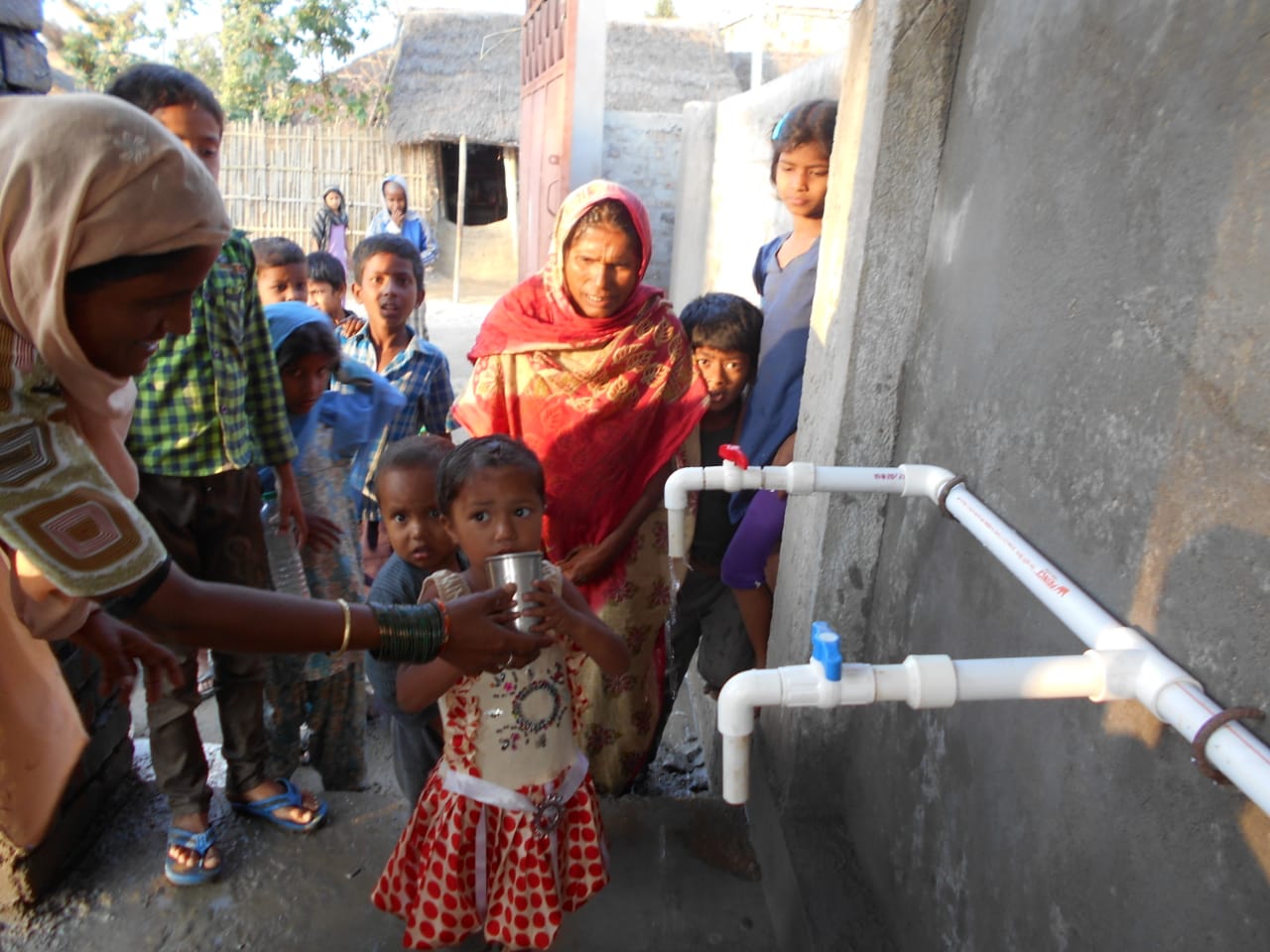
This change has been brought about by Sanitation and Health Rights In India (SHRI) which is working towards making the country open defecation free. The organisation has constructed over nine sanitation facilities—five in Bihar and four in Jharkhand, positively impacting the lives of over 5,000 people living in these areas. SHRI claims that each facility is used at least 1000 times in a day!
Interestingly, SHRI’s model is not only meeting the sanitation and hygiene requirements of the country’s villages but also supplying the villagers with safe drinking water for just Rs. 50 paise per litre!
SHRI—Building Toilets and Changing Lives
SHRI was founded in 2014 by Anoop Jain, Prabin Kumar and Chandan Kumar. Prabin, a graduate in Social Work from Shree Bhuvan University in Nepal, met Chandan, 34, at Project Why, a Delhi-based organisation working towards children’s education.
Chandan has a degree in Political Science from the Bhupendra Narayan Mandal University in Madhepura, Bihar and had already been working at Project Why since 2001.
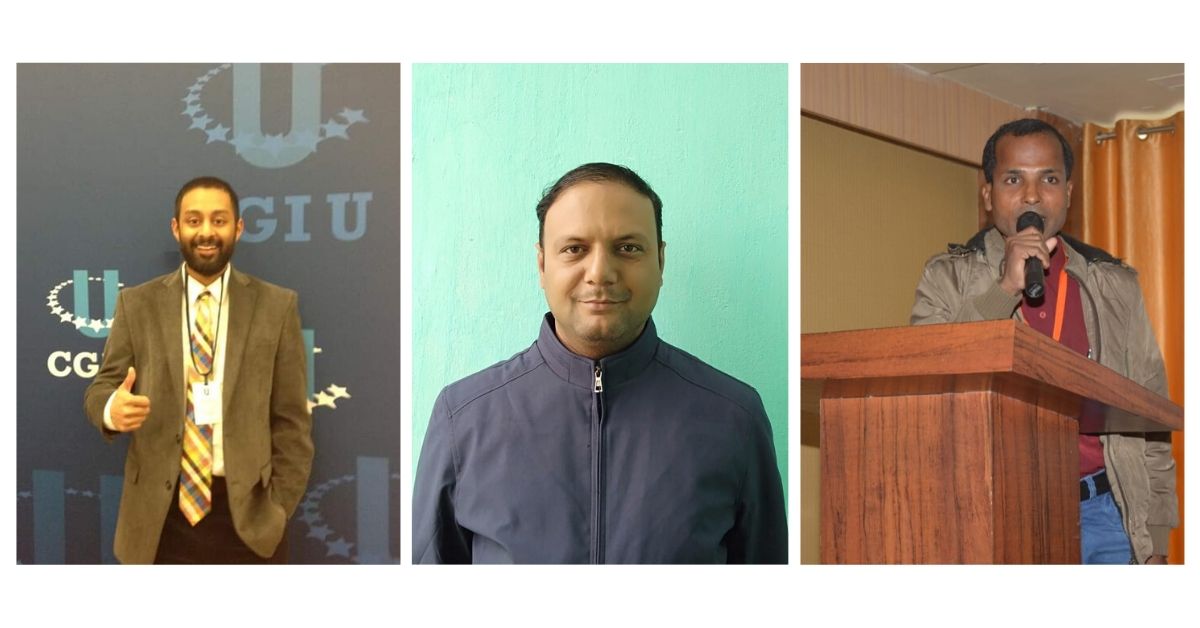
Wanting to make quality education accessible to rural children, both Prabin and Chandan quit their jobs in 2010 to set up an organisation called Deep Jyoti Charitable Trust in Bihar. It was while conducting the groundwork for their objective that they realised how the lack of proper sanitation facilities is a massive challenge across villages.
During this time, the duo met Anoop Jain who had gotten in touch with them as a volunteer. Anoop is a PhD scholar from the United States who had been volunteering with multiple organisations in the social sector in India. The three then sped up their research work and talked to villagers from Bihar in areas like Supaul, Ramdatpatti, and Basbitti among others, and finally conceptualised SHRI in 2014.
SHRI and its Solutions
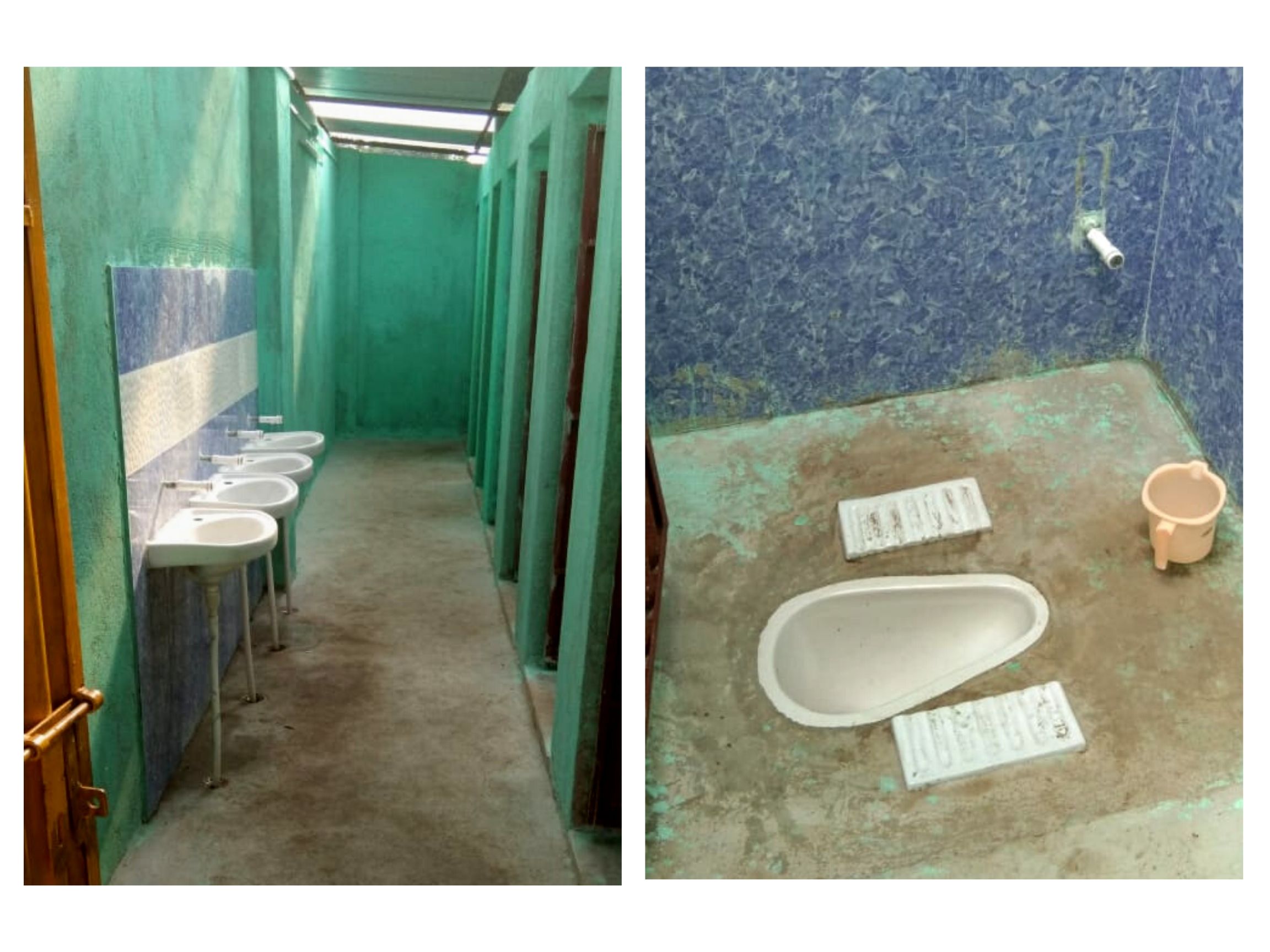
“When we were looking for solutions, developing a sustainable model was a bigger challenge than constructing toilets,” says 35-year-old Prabin.
The founders got in touch with sanitation experts like Sulabh International to understand the basics and navigate through challenges related to sanitation. To develop a sustainable model, the founders not only spoke to community members but also government officials and other stakeholders.
“From our conversations with people on the ground in Bihar, where we first started, we also realised that access to drinking water was another big challenge,” explains Prabin. States like Jharkhand and Bihar come under the mineral belt of India and have a very high concentration of iron in the water, making it unfit for drinking.
“But this issue helped us develop a sustainable model that could solve both the toilets and the drinking water problem,” shares Prabin.
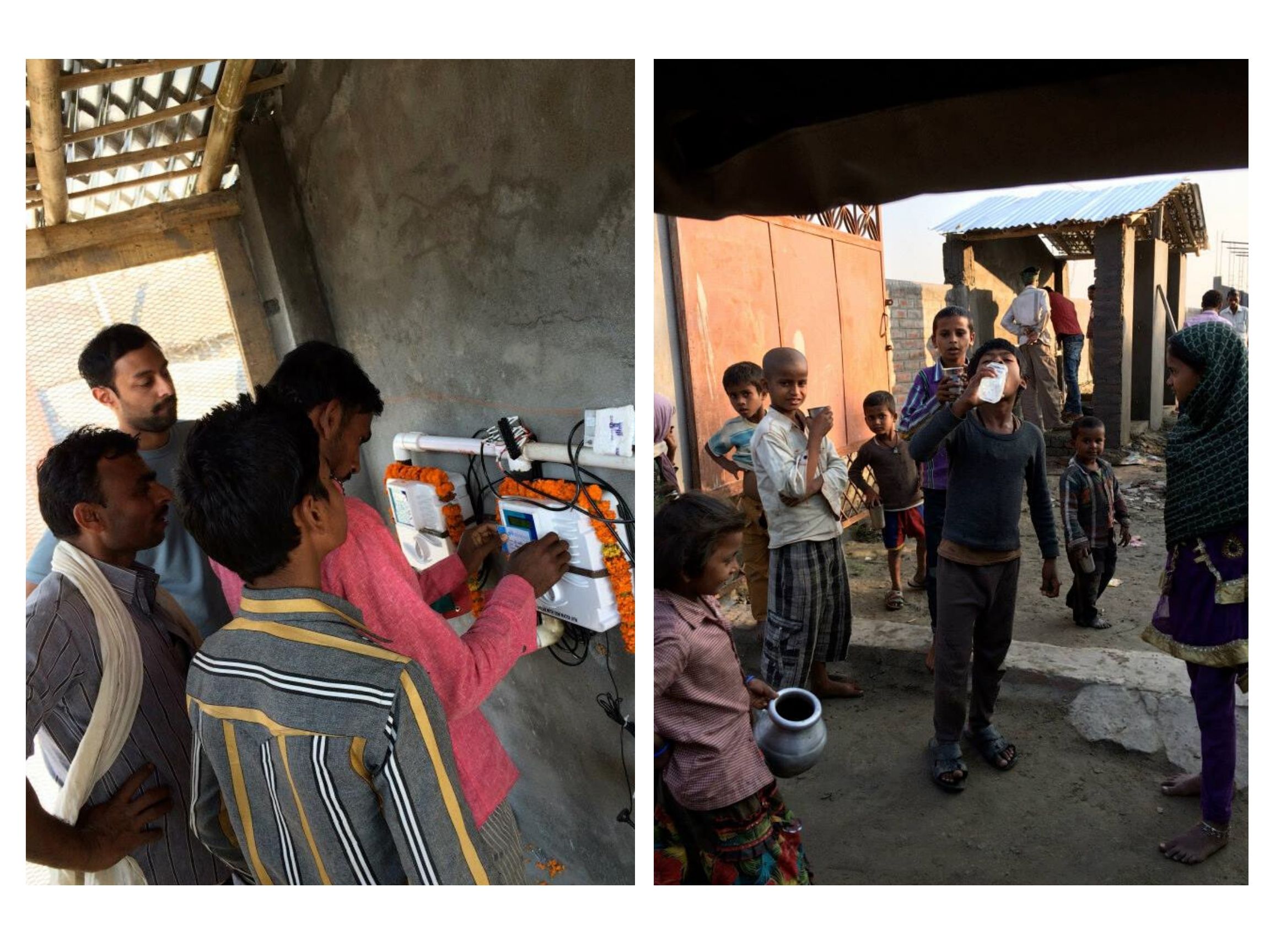
Drinking water has become extremely scarce with 70 per cent of the available water being contaminated. The Niti Ayog published a report which states that 600 million people in India face high to extreme water stress. The report further noted that at least three-fourths of the households in the country do not have access to drinking water.
SHRI tried to solve both these problems with a single solution. The organisation constructs a sanitation facility that comprises of 16 toilets, eight each for men and women. The facilities have a plumbing system along with hand-washing stations and biodigester.
The biodigester hygienically disposes of the human waste to produce methane gas. This methane gas is then used to power a generator which pumps and filters upto 1,000 litres of water in an hour. The management sells this purified water, and the revenue generated helps in the maintenance of the sanitation unit.
The founders developed the solution in collaboration with volunteers who came from abroad, and the research and consultation with different communities on the ground. Supaul district in Bihar was the first place where they successfully constructed their first sanitation unit.
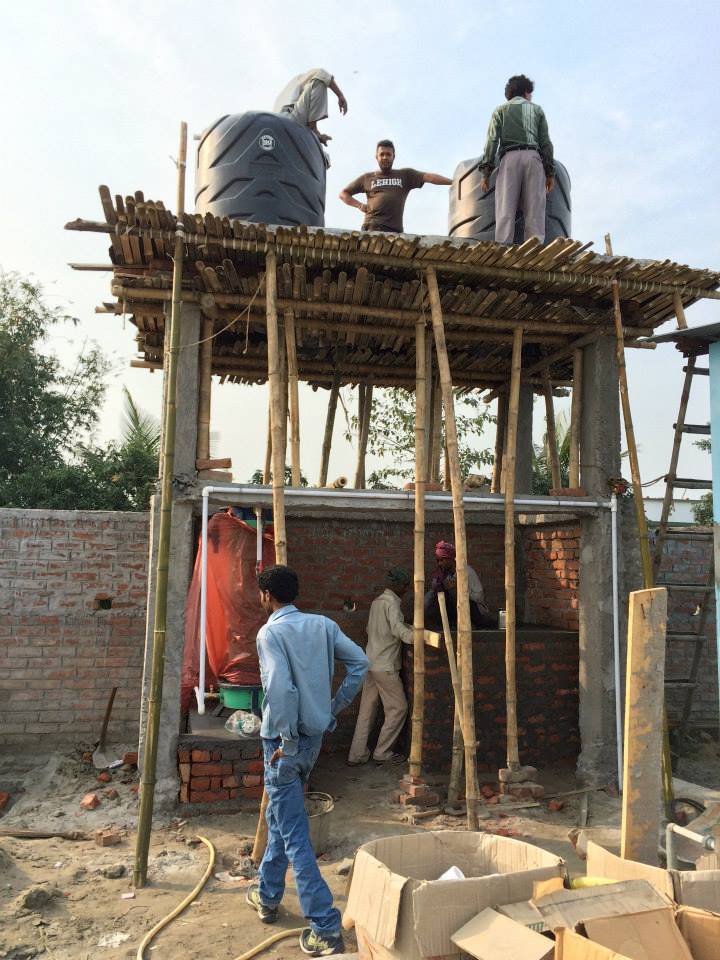
SHRI also worked with the Bihar government’s Jeevika Bihar Rural livelihood Promotion Society to build a toilet in the Sahar district of Bihar.
Operations, Challenges and Impact
Despite having come up with a feasible solution, the road to progress hasn’t been easy for the trio. Initially, the founders had to construct these toilets with the money they had won in several innovation competitions. They built their first unit with the prize money of Rs. 21.28 Lakh that they had won at the Dell Social Innovation Competition.
“There was no government help when we first started. We had to purchase the land from people and construct these facilities. But once they saw the impact of our solution, district officials and gram panchayat officials got in touch with us, and the process became smoother from then on,” recalls Prabin.
Now, state governments clear the land for SHRI to build these facilities. Furthermore, SHRI gets help from corporate CSR funds too.
Another challenge that they encountered was convincing people to consume clean and safe drinking water so that they wouldn’t have to visit the doctor often.
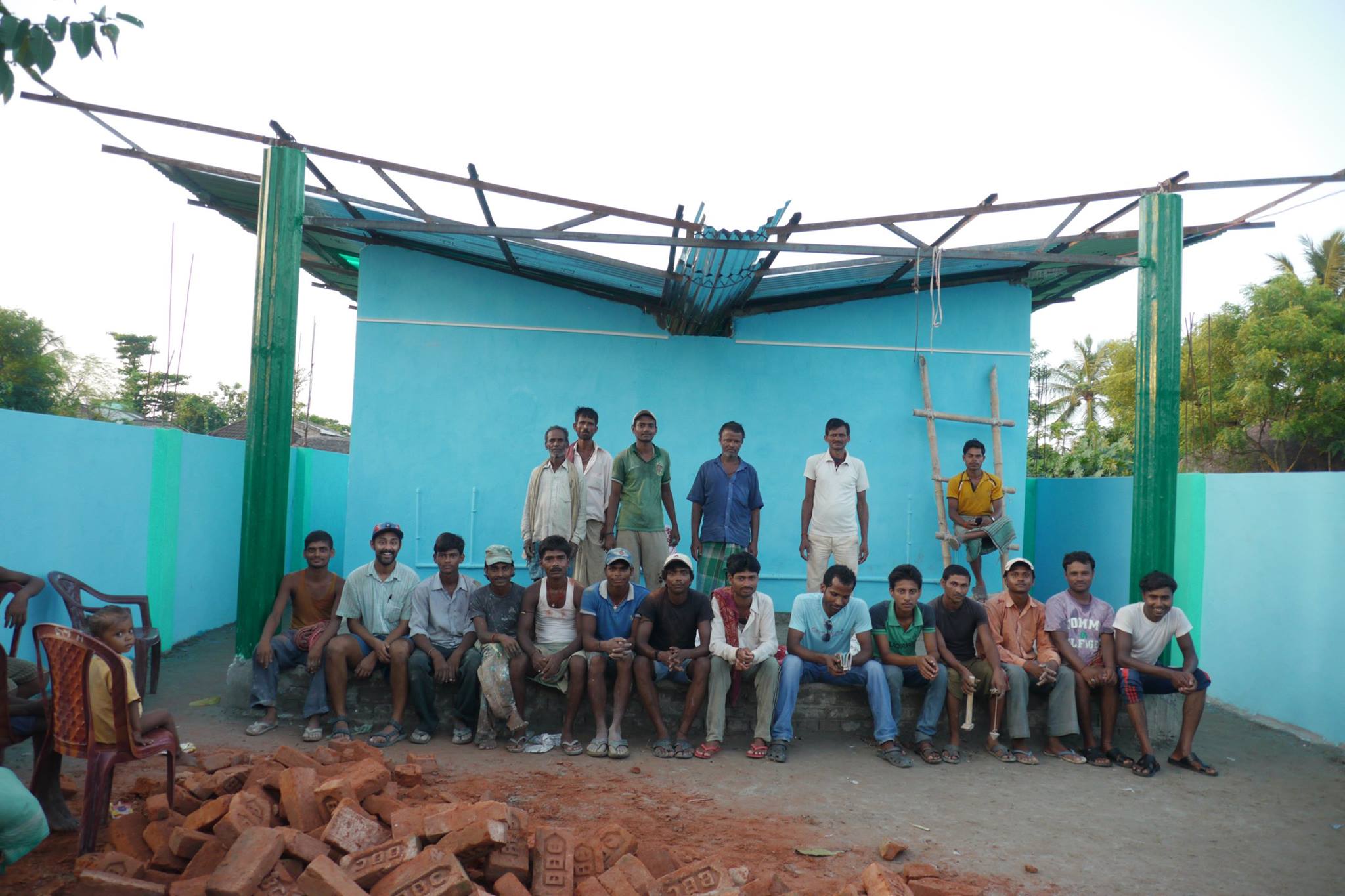
“In villages, the whole concept of paying for water is an alien concept. We had to get doctors and medical experts to explain to the villagers the detrimental effect of unpurified water on their health. They finally realised that they were spending way more on getting treated than they would’ve by buying and drinking purified water. So, a lot of them made the switch,” says Prabin.
Moreover, SHRI employs five people for each of its facility. Take 24-year-old Pappu Kumar, from Dundibag Jhopadi in Bokaro, for example, who was working odd jobs in the construction sector until he started working in the water filtering section at the sanitation unit about three years ago.
“I found work only for 20 days in a month if I was lucky. I was only earning about Rs. 4,000 a month,” says the man with a family of six.
Now, he is happy that not only does he have a stable source of income, he also earns more than double of what he was making before. “I am also relieved that we are getting to drink clean water in our area now,” he smiles.
So, after having impacted so many lives, what’s in store for SHRI now?
“We are now planning to expand in the state of Assam and want to scale up operations in areas in need of such sanitation facilities. By 2022, we hope that the existing facilities are run independently by the communities without our intervention. We also hope for greater collaboration with government bodies so that we can ultimately reach the goal of safe sanitation for all,” signs off Prabin.
Also Read: Saving Lives, Repairing Roads & Building Homes: Meet Telangana’s ‘Police Anna’
(Edited by Saiqua Sultan)
Like this story? Or have something to share?
Write to us: [email protected]
Connect with us on Facebook and Twitter.
This story made me
-
97
-
121
-
89
-
167
Tell Us More
We bring stories straight from the heart of India, to inspire millions and create a wave of impact. Our positive movement is growing bigger everyday, and we would love for you to join it.
Please contribute whatever you can, every little penny helps our team in bringing you more stories that support dreams and spread hope.



















